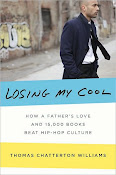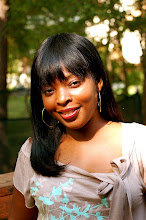
EDITOR'S NOTE: I originally wrote this piece for my writer friend, Eisa Eulen, author of the novel, Crystelle Mourning, and the purveyor of EisaUlen.com, where she pens a thoughtful, poignant blog about books and writings by and about people of color. I wasn't in the best place when I wrote this piece, and though today my writing career is going well, there are still days when I feel like this...
By DENENE MILLNER
Three more hours to go, and I’ll hear the bus rush down the street, signaling that my time is… up. The giggly girls will tumble up the brick stairs, backpacks askew, twists flying, serving up juicy kisses and demanding sweet treats—Golden Oreos, strawberries, and peanut butter and marshmallow sandwiches (folded, not cut, in half). That’s what they’ll want—that, and my undivided attention. There will be no more time for my other babies—the characters in my books.
The clock ticks.
I am struggling.
Full of doubt.
And wondering, yet again, why I don’t just give this writing thing up and get a real job somewhere—like Starbucks or the Georgia State Road and Tollway Authority. I could make lattes or collect dollars, and stop thinking about words already.
And why not?
I’ve got 12 books with my name on them, including my latest, Hotlanta, the first in a three-book series I’ve written with my co-author, Mitzi Miller, and three more books on the way. I’ve also written for an eclectic mix of magazines—from Essence to Parenting to Money to Men’s Fitness—during a writing career that’s spanned more than two decades. Yet today, I’m feeling like my job as an African-American author is one of the most thankless, underappreciated, low-paying jobs on the planet.
What’s got me in a tizzy? A prominent book editor’s quote in a recent newspaper article, saying that black authors who’ve had a successful book or two don’t have the right to expect long careers as writers.
My first response? Anger.
My second: What gives her the right?
My third: Resignation. Maybe I should just go on down to Starbucks. Because clearly, there’s just no respect for what we African-American writers do. We’re being left behind, hung out to dry—devalued. By publishers with editors who feel comfortable saying publicly that black writers should find another way to pay the bills, no matter their passion or past successes…
And magazines and newspapers that pay attention to white writing only, if at all…
And black readers who’ve stopped supporting work that tries to say something meaningful…
And black bookstores that are forced to stay afloat by filling their shelves with black pathology…
And by black grown folks who have retreated from the book-buying scene, only to leave behind snot-nosed teenagers clutching their (mamas’) $10 bill, looking for the next quick porn… er, urban fiction fix for their exploding libidos.
It is in this vacuum that a first time white author can serve up fantastic tales about how she buried her tears in Big Ma’s bosom after her gun-toting/drug-dealing/preteen foster sibs got got, and collect a six-figure advance and multiple big-ups in our nation’s most prestigious newspapers and mags. And publishers can feel really comfortable giving the side-eye to authors who aren’t willing to Relentless Aaron their way to the top (re: sell their books on prison buses and street corners to up their sales numbers) or refuse to toss in another explicit sex scene, or question why the woman on the cover got to be half-naked even though the book has nothing to do with half-naked women..
It is, indeed, in this vacuum, that we black authors can be asked to become some low-expectation-having mofos. Because low-expectation-having author mofos don’t expect their book deals to cover the Yale tuition. And we can be happy for both that primo real estate on the “black interest” table in our local bookstore (during Black History month, of course) and the obligatory shout-out in the reviews section on Amazon (even if the one-liner likely was written by either you or your cousin, Tay-Tay, who didn’t actually read the book, but figured she was doing her part). If you remind him you got a book coming out, your Dad might even call and congratulate you.
If he’s anything like my Dad, his instincts might cause him to blurt out Robert Townsend’s popular Hollywood Shuffle refrain: “You know they got jobs down there at the post office.”
“Why don’t you apply?” my Dad says, reasoning, “you just sitting in the house doing nothing anyway...”
What my Dad and most people who do something other than write for a living don’t realize is that, like many of my fellow writers, I spend most moments thinking about and rationalizing and editing and contemplating and conjuring words. Coddling and nurturing and growing up my “babies” in the hope that what they have to say will mean something to somebody. I especially want my words to speak to my people. My Hotlanta character Lauren, for instance, is complicated and simple, beautiful, but prone to acting ugly, sharp-tongued and ambitious, but immature and incredibly naïve. She is true—her voice important because she reps a whole host of African American teens who live similarly, but are rendered invisible behind the saggy pants-wearing/underachieving/reckless/menacing/living-in-squalid-broken-homes/I’m so hood stereotypes we’re all-too-often fed when we’re talking about black teenagers.
I know they’re better than this. I’d argue that a lot more of us do, too. And this is why I tend to make my “babies” do what they do. Their voices—my words—are purposeful. Even if they don’t really cover the tuition.
It is this that I try to remember as the time slips by, and another of my books is released into the universe, and my Dad and cousin Tay-Tay remind me to send them their (free) copies, and I bristle at yet another white author getting yet another review/profile/sloppy, wet kiss in a well-read publication or popular TV show, while yet another black author sees her advance dwindle, or his book proposal rejected, or their hard, thoughtful work ignored.
Post office/Starbucks/Toll collector gigs aside, I’m trying hard to stay focused. No, I can’t meet you for coffee. Or return your phone calls. Or read your resume and “shine up” your cover letter.
I’m a black writer.
And I’ve got three hours before the giggly girls tumble up the stairs, looking for their snacks. And somewhere during that time, Lauren has got… to… say… something… meaningful. Because I’m no low-expectation having author mofo. And I’ve got the audacity to hope that somewhere, somehow, my words—my babies—will speak to someone, just like they talk back to me.






























Well, this did. To me. I wish you the focus you are looking for to develop your book babies to become everything you are hoping they will be.
ReplyDeleteWell, this is interesting. Interesting because you, of all people, wrote this.
ReplyDeleteI imagine it must be difficult as a black writer. As I'm trying to join your ranks, I read this and I pause. I'm actually thinking, "Hmm, this nonprofit job ain't so bad. It pays the bills. My babies live in a great area. Heck, I'm driving a 2009 car!"
But I do want to write. More than anything. Scratch that. I DO WRITE. Every day. And do know why I write? Because it's my passion and I look up to people like you, and Mitzi, and Eric Jerome Dickey and Terri McMillan (where oh WHERE is her next book?) and Hill Harper and everyone else who struggles to get those words down, in the right order, that eventually turns into something meaningful. It's not only your "babies" that say something to the world. You do too. You tell me that it IS possible to have the writing career that I want even those I have two little ones tap, tap, tapping on my keyboard right along with me. It IS possible. You give me hope for that. So keep your head up and keep doing you. :)
***sigh*** Thank you, Denene. Thank you so much for this. - TMLG
ReplyDeleteWow....I understand some of what you are going through. I do believe that writers are not taken seriously and it is viewed as a frivolous job.
ReplyDeleteKeep writing!! You have a talent and voice that needs to be heard.
Wow,Tara. I have to say that your story sounds like mine. I wish you ALL the best.
ReplyDeleteIronically Denene, I became so withdrawn as a writer that not only had I stopped writing, I had stopped reading Black authors PERIOD. This was during a period where all I saw on bookshelves in mainstream bookstores were the "urban fiction", promiscuity laced, mistress-heroine, bling-bling titles that I did not identify with as a 30 something married Black woman. To me this said, "Child, what you got to say ain't even relevant, ain't nobody trying to hear about it, and ain't nobody gone buy it." I actually bought into that fear and it had me TOTALLY crippled as a Black writer, trickling down to my reading as well.
I used to inhale books by other Black writers, knocking out a book a week. I wanted SO MUCH to be alongside them, the next generation of women whose words moved across pages into the hearts of readers. But instead of continuing my pursuit of the power of words through reading, I stopped that altogether as well. Didn't even pick up a book for about 3 years. I was EMPTY. No words. No creative outlet, nothing. Y'know the ostrich?? Exactly. Stuck my head in the damn dirt. Fear. Uncertainty. Fueled by a mainstream marketing design that made me feel like I was doing better to stay my behind in the classroom, and let the kids be my audience. Talk about LOW EXPECTATIONS.
Now, here is where the praise begins.
Here is where I keep myself from climbing off of this sofa 'bout ready to dance around my living room...
January 2010 helped me break out of this shell of a person who was living a fraction of the life I was created to live. Your blog, you sending me facebook encouragement, energy from sisters like Carleen and Connie and Tina Ansa has made me unstoppable. I pick up my pen everyday. I bang out at least a paragraph on my mac every night. And I may not even know where it will take me, or if it's even good, or who will read it, or who it will bless, but it is BLESSING ME. I'm on my way to where I belong. My library account is constantly on jam with at least 6 titles at a time (renewing over and over...) I've found that surrounding myself with a community of sista writers (even online) has validated me, my experience, my words and my story. And I can't stop now.
So, yep, I'm still in the classroom, still enjoying my students, still being mama to my boys at home, still being a good wife....and I AM A BLACK WRITER.
No Starbucks for me.
Thanks for a wonderful post. (blowing my nose) I didn't mean to go there, but once again, your words moved me to write. Be Blessed.
My God—ladies, I have tears in my eyes reading your comments. Thank you for your kind words, but more importantly, for your commitment to fine, meaningful, beautiful, lasting writing. I love nothing more than the written word, except other people who are committed to the written word—and especially to those who use them to present us to others with love and understanding. For this, I am grateful and moved to keep soldiering on.
ReplyDeleteI want each one of you to, too.
WE are black writers.
Well said, Denene. I hear ya loud and clear. As an author of a book that is autobiographical, I got no support for my work. Yes, it sold, and I did lots of book signings and the like, but my work, which has the potential to change the lives of African-American youth who are struggling to overcome obstacles in their lives, was not given the exposure it deserved. Entitled, "How Ya Like Me Now!” the book chronicles my life as a poor, black girl growing up in public housing and who almost ended up in jail rather than college. The foreword was written by Alfred Edmond, Vice President of Black Enterprise Magazine, a homeboy who too acted out and almost didn't make it. I have used my book as a platform to encourage and motivate young people in juvenile detention facilities, schools, special programs for "bad" kids, and other venues.
ReplyDeleteI mailed my book to so many people who could have given it the exposure it deserved given the subject matter, one that we talk about endlessly. To piggy back on Denene's thesis, my question is this: Why do we not support ONE ANOTHER? Forget that we are overlooked and denigrated by whites. We don't help one another. Would I have gotten the support had I written about black hoes and bitches? Would I have gotten air time had I written about a black pimp cruising the avenue for fine black thangs? Who knows? All that I am saying is that we need to begin to focus on how we treat one another. We are all too familiar with the mindset of whites and their lack of support for much of what we do and the contributions we make to society. But what about us? Why, when there are so many of us in a position to support our own, do we fail to do so? Let's talk about that!
I am very shy about promoting myself and my work. I am getting better but I still have a ways to go. Unlike many self-publishers, I don't carry my books around in my car. I don't automatically offer my business card to people, and I almost never speak of my book in public unless the conversation absolutely warrants it. My friend, Caryl Lucas, often gets on me for not being more aggressive about promoting my book and other work. So I am going to take this opportunity (and I hope you don't mind Denene) to paste a critique of my book written by Rodney Snell, another homeboy and a black journalist in New York. He said it well. It is posted on a separate block. Enjoy!
The voracity with which I ingested those 310 pages was fueled in part by the negative comment expressed whenever the book was mentioned. Blistering critique of the work and author piqued my curiosity, driving a need to know what had so many people in our town upset. After reading it twice, I am still unable to identify the cause of so much consternation, when all I feel is peace. How Ya Like Me Now is the autobiographical reflection of Leslie Morris. Though we’re not biologically related, she’s always been counted among my multitude of cousins, partly because she was usually with one of them, but mainly because of our collective family history.. The roots of our familial bond can be traced to the Georgia sharecropping community in which both her mother and my grandmother were born and raised. Each woman joined the Great Migration and, despite different paths, settled in Long Branch, New Jersey, reuniting with previous migrants from their hometown. Bound by shared history and the common desire for a better life, the "Sisterfriends" produced a tribe of children and raised them with the closeness of kin. It was the first generation to be formally educated. With none of the visible barriers that impeded their ancestors, nearly all graduated high school. Many went on, becoming the first in their families to enter college. Most earned undergraduate degrees and some went even further by completing graduate school. Always bright and determined, Leslie raised the bar of achievement for her generation. In addition to an undergraduate degree from Boston’s prestigious Simmons College, she holds two Master’s Degrees. How Ya Like Me Now! maps the journey undertaken by this daughter of uneducated laborers, reared in public housing. Morris lovingly, but also with brutal honesty, recounts her difficult childhood and troubled adolescence from dual perspectives; the confused, combative youngster she was and the dynamic, celebrated professional she’s become. This duality is important and beneficial because through the eyes of the professional we learn that what may be perceived as hard or callous parenting from a child’s perspective is a simple case of a parent operating within their limits. It’s extremely beneficial because it creates in adult children the capacity to forgive and thereby heal. While chronicling her journey, Leslie remembers her peers, some of whom didn't fare so well. With vivid detail she recounts how physical and emotional abuse, delinquency, teen pregnancy, substance abuse and other issues stifled dreams and claimed young lives. In fact, much of the discord surrounding the book apparently stems from these observations. While no one disputes the events, nearly everyone challenges her right to speak on them, which is ridiculous. Their profound impact on her path is undeniable and aside from the disclosure of a hushed abortion, much of it was already common knowledge. What a great shame that so many fail to comprehend the importance of this work; will never recognize its potential to change lives or appreciate the author’s courage. For me, the blessings are abundant. My favorite chapter is a glowing tribute to her grandmothers, two deeply spiritual women who ignited our faith and often stood in the gap for an entire community. Not only did they pray for our salvation, they lived in such a way that let us see God’s grace in action. The greatest blessing I take from this work is a deeper insight of and appreciation for the people who raised me. I may not be able to express my gratitude to so many that earned it because they have gone on. However, I will honor them by expressing genuine love and compassion to my fellow man. Thank you, Leslie.
ReplyDelete